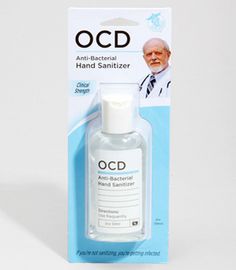When people ask about my giving up flour and sugar, they have an easy time grasping the raw health benefits. What’s harder for them to understand is how these things can form a mixture as addictive as heroin.
Here’s my attempt to explain it.
First, the point I need to make is that for us addicts, the substance isn’t the root of our problem. Two other things bring us down:
–A hole in our soul that we try to fill with anything that might make us feel good, be it drugs, booze, food or spending money.
A lot of times when someone sobers up or stops binge eating, it’s a white-knuckle experience.
It’s not just because you’re missing your junk and the momentary feeling it gives you. It’s because the hole in your soul — the thing that drove you to addiction in the first place — is still there. If you don’t deal with that hole, you might stay clean for a year or two. But sooner or later, unless you stay on top of it with brutal discipline, you’ll fall right back into the old, insidious patterns.
–When we latch on to a particular substance as a crutch, we can never, ever get enough.
It’s very simple, really: Once we take the first drink, the first hit or the first bite, we’re off and running and nothing — and I mean nothing — can make us stop. In my case, I would eat and eat and eat. The wall that goes up inside most people when they get their fill doesn’t exist for folks like me. I just keep gorging. Here’s an example of what the behavior looks like:
6 a.m.: Wake up, pour coffee. Resolve to live on nothing but coffee and cigarettes for the day.
8 a.m.: Fuck it. You’re hungry. Eat something healthy for breakfast. A bagel and cream cheese will do. Serving size, one 12-ounce container of cream cheese. Add swiss cheese.
8:15 a.m.: Smoke another cigarette and decide that’s all the food you’re going to eat for the day. Resolve to eat one giant breakfast and nothing else for the day for the next several days.
9 a.m.-10:15: As you work, start having a back-and-forth in your head as to whether you really should be having lunch.
10:45 a.m.: Walk to the vending machine for a healthy snack of animal crackers. Choose the Pop Tarts instead. Continue to ponder lunch.
11 a.m.: Take a break from work and drive around to clear your head. Resolve to have a smoke or two but no lunch.
11:02 a.m.: Proceed to the nearest fast-food drive-through or buffet place.
11:15-noonish: You chose the buffet place. Good. Stay there until you’ve had your fill. This will require going back for seconds, thirds and fourths.
Noonish-3ish: Resume working while pondering why you’re such a shameful idiot.
3ish: Get in the car. Plan to drive straight home.
3:05 p.m.: Stuff yourself with the $25 bag of McDonald’s you don’t quite remember buying a couple minutes ago.
3:30 p.m.: The three cheeseburgers, two large fries and two orders of chicken strips is consumed, and you’re sitting there wondering what you’re doing in the Dunk ‘N Donuts drive-through.
3:32 p.m.: Stare at the empty box of donuts and wonder what’s wrong with you.
3:35-4 p.m.: Keep your eyes on the road as you try to put the shame you’re feeling in the proper perspective.
4 p.m.: Get in the house and try to act like nothing’s wrong. When the kids ask you to play with them, explain that your back hurts and lie on the couch.
5:30 p.m.: Dinner time. Try as hard as you can to eat some of what’s on your plate, even though it looks healthy and your gut is throbbing from what you did earlier.
6:30 p.m.: Get the kids ready for bed.
7:30 p.m.: Fall asleep on the couch and forget the day you’ve just had.
Repeat process the next morning.
No matter what you latch onto as the crutch, this is usually what the itch and the scratch look like for the typical addict. You scratch until you bleed.
In my case, the substance and crutch was flour and sugar. I would binge specifically on the food that was loaded with those two ingredients.
Once in my system, it flipped a switch in my brain that twisted my thinking. I would grow paranoid, depressed and afraid, seeing imagined enemies around every corner. A friend would look like just another animal out to get me.
In that mindset, there’s no limit to the stupid things you’ll do or say.
Like any addict who finally reaches a special point of desperation, I turned to a 12-Step program to get better. The steps are effective for the simple reason that it targets the hole in your soul — not the substance itself.
In the end, that’s what you need to work on to have long-term recovery.
That’s how it is for me, anyway.








 The wall hangings are as hit or miss as the T-shirts, but given my love of heavy metal music, I couldn’t help but like this one:
The wall hangings are as hit or miss as the T-shirts, but given my love of heavy metal music, I couldn’t help but like this one:
 No, it doesn’t bother me.
No, it doesn’t bother me.